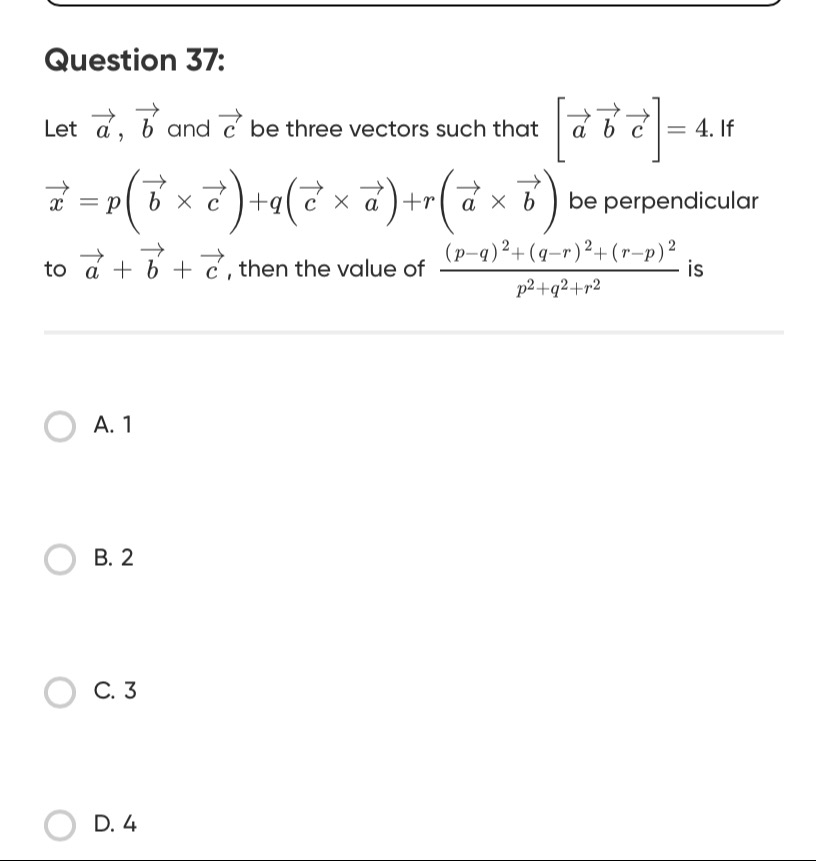Question
Question: Let $\overrightarrow{a}$, $\overrightarrow{b}$ and $\overrightarrow{c}$ be three vectors such that $...
Let a, b and c be three vectors such that [abc]=4. If x=p(b×c)+q(c×a)+r(a×b) be perpendicular to a+b+c, then the value of p2+q2+r2(p−q)2+(q−r)2+(r−p)2 is

1
2
3
4
3
Solution
Given three vectors a, b, and c with [abc]=4. A vector x is defined as x=p(b×c)+q(c×a)+r(a×b). The condition that x is perpendicular to a+b+c implies their dot product is zero: x⋅(a+b+c)=0 Substituting the expression for x: (p(b×c)+q(c×a)+r(a×b))⋅(a+b+c)=0 Expanding the dot product, and using the properties of the scalar triple product, specifically (u×v)⋅w=[uvw] and that [uvw]=0 if any two vectors are identical, the equation simplifies to: p[bca]+q[cab]+r[abc]=0 Using the cyclic property of the scalar triple product, [bca]=[cab]=[abc]. Let K=[abc]=4. The equation becomes: pK+qK+rK=0 K(p+q+r)=0 Since K=4=0, we must have p+q+r=0.
Now, we evaluate the expression p2+q2+r2(p−q)2+(q−r)2+(r−p)2. Expand the numerator: (p−q)2+(q−r)2+(r−p)2=(p2−2pq+q2)+(q2−2qr+r2)+(r2−2rp+p2)=2(p2+q2+r2)−2(pq+qr+rp) From the condition p+q+r=0, squaring both sides gives: (p+q+r)2=02 p2+q2+r2+2(pq+qr+rp)=0 2(pq+qr+rp)=−(p2+q2+r2) Substitute this into the numerator: Numerator=2(p2+q2+r2)−(−(p2+q2+r2))=2(p2+q2+r2)+(p2+q2+r2)=3(p2+q2+r2) The expression becomes: p2+q2+r23(p2+q2+r2) Assuming p,q,r are not all zero (which would make x=0 and the expression 00), p2+q2+r2=0. Therefore, we can cancel the term p2+q2+r2: Value=3
